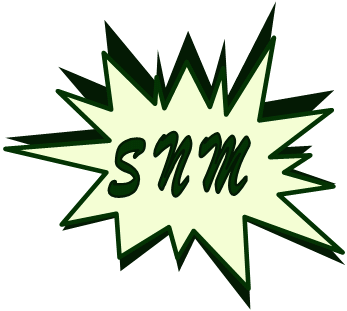Wykłady plenarne
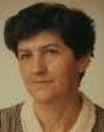 |
Harmonizing different kinds of mathematical thinking in mathematics education
Marianna Ciosek Uniwersytet Pedagogiczny im. KEN w Krakowie, Polska |
 |
Stefan Turnau Uniwersytet Rzeszowski, Polska |
| Classroom observation and research show that many – if not majority of – students asked to decide on the truthfulness or falsity of a statement answer (correctly or not) right away, without taking time for a reflection or investigation. Often a single example at hand is to them a sufficient foundation for the decision and its justification. An important aim of the teaching of mathematics should be the development of correct thinking habits in situations where truth is sought. Neither learning algorithms nor mathematical proofs would fulfill it. School mathematics is a good playground for it but it would demand de-emphasizing elaborated proofs and harmonizing all kinds of inference: empiric, intuitive, through analogy, and deductive. In the lecture we will show examples of correct and incorrect students’ evaluation of sentences and their justifications, both collected as a result of our observation and research, and found in the literature. | |
 |
Challenging Myths about Mathematics Paul Ernest Exeter University, United Kingdom |
| In this talk I will question and challenge three ideas about mathematics: that mathematics is
I challenge the view that mathematics is absolute, universal and value-free, arguing that there are powerful and legitimate reasons for viewing mathematical knowledge, proofs and the objects of mathematics as human social constructions. From this perspective, it cannot be claimed that mathematics is ethics and values free. Lastly I argue that mathematics does harm as well as good in shaping thought in an amoral or ethics-free way, it supports Instrumentalism and ethics-free governance (manifested in warfare, psychopathic corporations, human and environmental exploitation) and in sorting and labelling learners and citizens in modern society. I conclude that to overcome such myths we need to teach the philosophy and especially the ethics of mathematics alongside mathematics itself. | |
 |
Career Construction in the mathematics classroom:
Using an integrated, qualitative+quantitative approach to enhance
learners’ sense of self Kobus Maree University of Pretoria, South Africa |
| Career Construction Counselling and Self-Construction Counselling aim to help learners script their career-life stories. This approach is suitable for exploring personal meanings and for helping learners deal with the many problems involving meaning. The aim of the paper is to demonstrate the implementation of an integrated, qualitative+quantitative approach in career counselling in combination with a parallel approach in mathematics to elicit and harness learners’ reflexivity, enhance their sense of self and, ultimately, enable them to participate more actively in career and self-construction and in the writing of their emerging career-life stories. A brief case study will be discussed to demonstrate the approach. The results cannot be generalized but it seems that drawing on an integrated, qualitative+quantitative approach in mathematics classrooms holds much potential to enable learners in a variety of contexts to improve their mathematical performance and, more importantly, help them to make and execute informed decisions about their career-life journeys. | |
 |
Developing Culture of problem solving through heuristic strategies Jarmila Novotná Charles University in Prague, Czech Republic |
| It is a universally accepted truth that problem solving forms the basis for successful mathematics education. Problem solving is an indicator of the state of comprehension of concepts that pupils are taught. They help their solvers realize what former knowledge is applicable in the new situation, what role this knowledge plays in it, what knowledge turns out to be useless or even erroneous and thus becomes an obstacle to further development of mathematical knowledge and pupils’ skills. In my talk, I will present the results of the three-year project Development of culture of solving of mathematical problems in Czech schools (Czech Science Foundation project P407/12/1939) focusing on the use of heuristic strategies in problem solving. Heuristic strategies have been used in Polya’s and Schoenfeld’s understanding of the concept. The theoretical background of the research was Brousseau’s Theory of Didactical Situations. The use of heuristic strategies will be explored from two different perspectives: how heuristic strategies develop pupils’ understanding of mathematics through using them and how teachers changes in consequence to giving their pupils the chance to use these strategies. | |
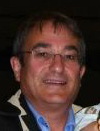 |
Contract, transgressions and creation.
An attempt to clarify the paradoxes of the didactical relationship in mathematics education from a didactical and anthropological approach
Bernard Sarrazy Université de Bordeaux, France |
| During the first part of the lecture, we will study, from a theoretical point of view, the issue of transgression as an expected response given by the pupil but unrequired by the teacher. This phenomenon is the paradoxical result of the contract which forms during any didactical relationship: “this is what you have to know, and from now on, think for yourself to show that you are able to create new uses of what you have been taught; in other words, act in accordance with what I have taught you but don’t obey me!”. So, transgression will be considered as a necessary condition for learning mathematics (different from the use of techniques, algorithm, and rules) whose conditions of existence stand at the crossroads of determinations which are both didactical (with reference to “the paradox of devolution” as defined by Guy Brousseau in the theory of didactical situations) and anthropological (with reference to the concept of “use” in Wittgenstein’s anthropology and to his famous rule-following paradox). During the second part, we will base our argument on different research in order to underline: a) the relevance and the interest of this theoretical approach in order to gain a better understanding of the reasons for pupils’ and teachers’ recurrent difficulties (for example, “you know your lesson, the teacher says, but you didn’t understand it.”), and the reasons why some means intended to regulate these difficulties fail and b) the role of “backgrounds” (in the Searlian meaning of the word), like familial educational practices and the didactical and pedagogical cultures of school environments (which are linked to values, beliefs, epistemological and pedagogical conceptions of the teachers) in order to account for the appearance of interindividual differences concerning the relations with transgression, and so clarify the ways we can go beyond the initial paradox. In conclusion, we will promote the idea of a “normative transgression” to describe this phenomenon of sudden appearance of new creations (“transgressive” dimension) which are expected by the teacher and lived by the pupil as a measured disobedience, for it is basically in accordance with the “account books” of mathematicians (normative dimension). This is probably where the fascinating and singular essence of mathematical activity stands, between logical constraints and boundless openness of creative possibilities. | |
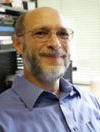 |
What makes for powerful classrooms, and how can we support
teachers in creating them? Alan Schoenfeld University of California, USA |
| Most of us think we know what “good teaching” is. The problem is that we don’t – opinions about “good instruction” differ, although research clearly says certain things are important. My research-anddevelopment goal has been to do some ground clearing: to lay out a straightforward way of characterizing classrooms that produce students who are powerful thinkers, to test that characterization empirically, and then to fashion forms of professional development that supports teachers’ growth in the things that count. I’ll discuss progress along those lines. The talk will include a discussion of the “Teaching for Robust Understanding of Mathematics” (TRUmath) framework, a description of how it can be used for research on teaching, and then the characterization of some tools to support effective teaching and can be used to build robust professional development. | |
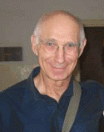 |
Scientific Thinking versus Religious Thinking in the Eyes of a Jewish Secular Science Educator
Shlomo Vinner Hebrew University of Jerusalem; Ben-Gurion University of the Negev, Israel |
| In my talk I'll characterize Science Education as a research discipline. I will characterize scientific thinking versus religious thinking. The main difference is that scientific truths are refutable whereas religious truths are irrefutable. Thus, relying on Popper, we can consider religious thinking as pseudo-scientific thinking. The talk will compare the contribution that science and religion can offer to face the main problems of human beings: mortality and suffering. Science can hardly facilitate our dealing with these problems. On the other hand, the solutions which religion offers to us have their own problematic. | |
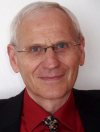 |
Structure-Genetic Didactical Analyses – empirical research of the
first kind Erich Ch. Wittmann Technical University of Dortmund, Germany |
| In mathematics education of today theories of teaching and learning that are based on disciplines different from mathematics („imported“ theories) are widely dominating the field. This imbalance greatly reduces the impact of mathematics education both on teacher education and on the teaching practice. In order to return to a balanced situation it is necessary to pay more attention to theories which are based on mathematics. As an example of such a „homegrown“ theory the talk will present the structure-genetic didactical analysis, the research method of mathematics education conceived of as a „design science“. | |








